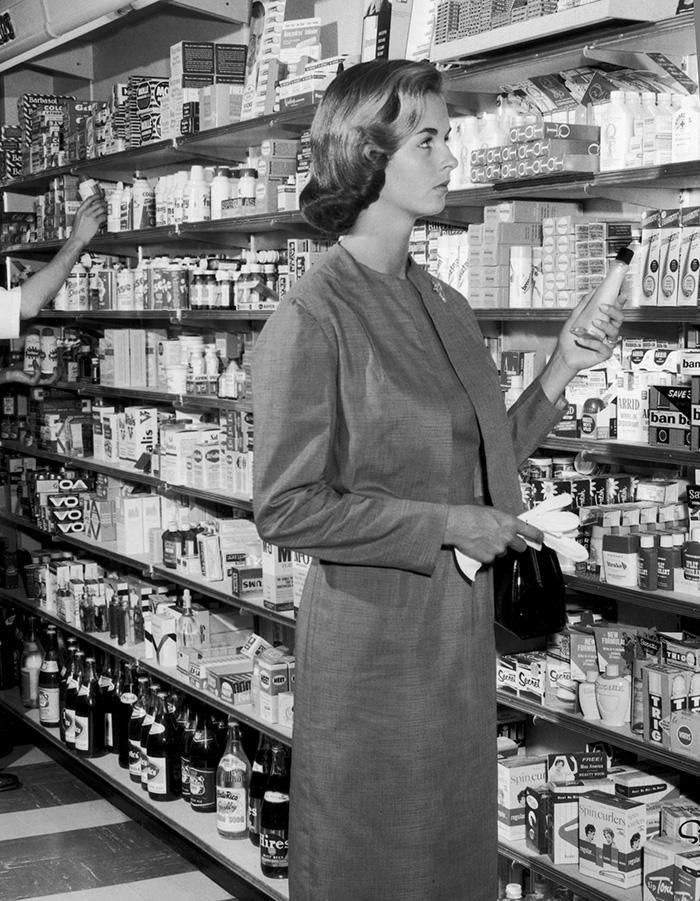More Than Half of Women Want ‘Green’ Beauty Products Now

When it comes to unwanted, unregulated chemicals found in so many beauty products, 2016 has been the year of revolt: The Senate held its first hearing on a proposed law to improve cosmetics regulation, and sales of organic beauty products continue to climb. Now a survey has found that more than half of women over 35 — and a whopping 73 percent of millennial women — believe it’s important to buy all-natural cosmetics.
“This is now on people’s radars,” Kari Gran, commissioner of the Harris Poll survey and founder of an eponymous line of holistic cosmetics, tells Yahoo Beauty. “I think that when organic and green skin care came out, the [beauty] industry thought it was a fad. But the slow-food movement just built and built and built, and this now feels the same to me.”
Her second annual Green Beauty Barometer survey questioned 1,126 women across the country about their beauty consumer habits and desires. Among the notable findings are:
More than half of all women (55 percent) read product labels before purchase in order to avoid certain ingredients, including chemicals.
For products within the surveyed categories — skin care, hair care, makeup, sunscreen, fragrance, and nail care — more than one-third of women (35 percent) will spend more money on green beauty products over the next two years, compared to what they spend now.
Skin care products are the most in-demand all-natural products among all beauty categories.
Women with children in the home (69 percent) are more likely to value natural beauty products compared to women without children in the home (56 percent).
Gran, whose product line is free from the 1,300 chemicals barred from personal care products in Europe (as opposed to the mere 11 barred in the U.S.), finds the results encouraging. “The upside here is that consumers are much more educated than they used to be,” she says. “People are no longer buying in at face value. They are listening to their friends and reading blogs and labels.” She points to the Skin Deep ingredients database of the Environmental Working Group (EWG) as a particularly valuable reference.
The downside, though, is how slow regulators and manufacturers have been about keeping up with consumer demand. The proposed law at the center at the aforementioned Senate hearing, for example, if passed, will be the first changes to the Federal Food, Drug, and Cosmetic Act since 1938. And because such regulations are so lacking, many of the key words used in the Green Beauty Barometer survey — including natural, green, and even organic — are utterly meaningless when slapped onto beauty product labels.
But many consumers don’t know that. According to a recent survey by the EWG, the majority of Americans believe that at least some of the chemicals used in personal care products have been cleared for safety by the government when, in fact, there is barely any regulation of the industry. Another survey, this one conducted by both the Federal Trade Commission and the U.S. Department of Agriculture, found that many consumers mistakenly believe personal care products with organic claims meet government standards — and that they contain only organic ingredients.
The term “natural” is similarly useless, Scott Faber, EWG’s vice president of government affairs, tells Yahoo Beauty. “When it comes to ‘natural cosmetics,’ the word natural means nonsense,” he says. “There is no definition for natural and no guarantee that so-called natural products are safer or better for the environment. It’s time for regulators to define natural in a way that protects consumers from misleading claims.”
Still, for the purposes of the Green Beauty Barometer survey, Gran says, natural is a word that at least conveys what consumers want, even if the facts behind its use on products are fuzzy. “It’s a word that everybody understands,” she says. “They think ‘good for you’ and ‘from the earth.’” The next step is to get those in the industry to agree.
Let’s keep in touch! Follow Yahoo Beauty on Facebook, Twitter, Instagram, and Pinterest.


